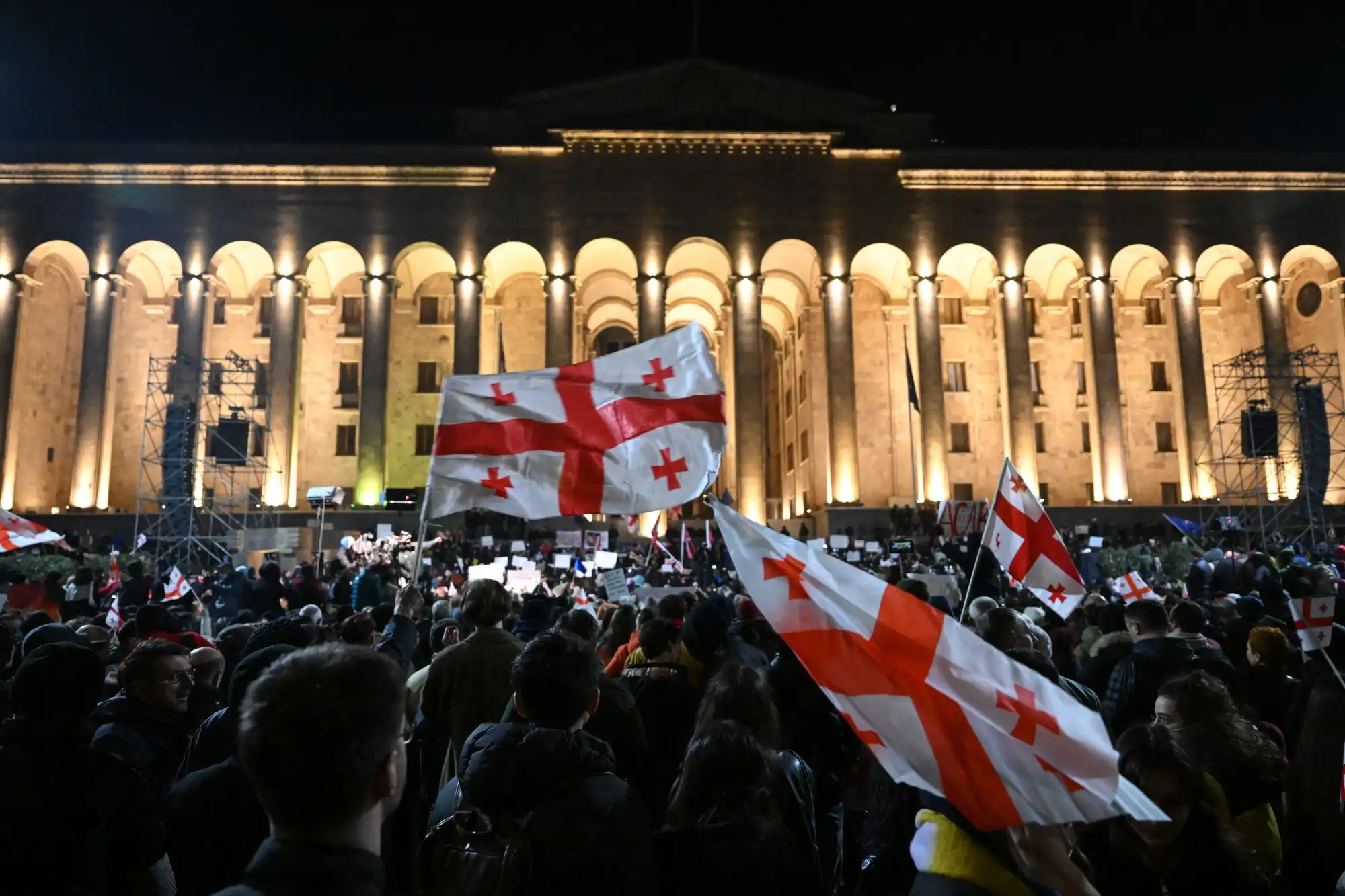Analysis
Paulina Villegas
Caucasian Russification: The Controversial Foreign Agents Law in Georgia
- With 84 votes in favor, the Georgian parliament passed the law that threatens to distance itself from the European Union

With 84 votes in favor and 30 against, on May 14, the Georgian parliament passed the controversial law on the transparency of foreign agents, “the Russian law,” a contentious project that threatens to distance Georgia from the European Union.
What does this law seek to regulate?
The law on the transparency of foreign influence, inspired by a similar regulation implemented in Moscow and driven by the belief that these organizations defend the interests of some foreign power, requires that national organizations, NGOs, and media outlets that receive more than 20% of their funding from abroad register as "agents of foreign influence." This measure is presumed to be a mechanism for controlling critical voices in the country and an opportunity to strengthen Georgian authoritarianism.
With the approval of the counterpart to the Russian law, the Ministry of Justice will have the power to demand necessary information and significantly control visible dissent in the face of the country's growing absolutism.
Russifying Georgia: A threat to Georgia's entry into the European Union
Since the proposal of the law in 2023, more than 50,000 citizens in Georgia have protested against it, accusing it of being an oppressive method inspired by Russian national authoritarianism. On the other hand, there is talk of a factor that will greatly hinder Georgia's advancement towards joining the European Union.
Retrieved from El PAÍS, May 15, 2024
Influenced by its Western foreign policy, in 2022, Georgia applied for membership in the European Union, being granted candidate country status a year later, under the condition that the Caucasian state would need to adopt relevant measures outlined in a Recommendation from the European Commission, a formula composed of measures against polarization, the fight against disinformation, and solid protection of human rights, specifically in terms of freedom of operation and expression within national territory, which in short, indicated strengthening Georgian democratization.1
However, through the dominance of the “Georgian Dream” party, in recent years, a path closer to Moscow and farther from the European dream that Georgians long for has been undertaken. It involves the implementation of regulations inspired by Russian nationalism, which seem to have erased their influence and anti-sentiment in the region.
The significant relationship that Georgia had with Soviet Russia shortly after its annexation in 1921 declined in the face of rejecting policies that promoted Georgian Russification. As a result, the independence movements following the Soviet dissolution in 1991 left the territories of Abkhazia and South Ossetia out of control, areas where separatism was becoming increasingly apparent.
The above marked the beginning of a deep conflict between the two nations for control of these territories. On the one hand, Georgia claimed them, while on the other, Russia economically and militarily supported these regions in their separatist struggle, with the aim of consolidating its power and influence in a region that had rejected Soviet control for many years.
Years later, Georgia, which had solidified its relationship with NATO and the United States, became involved in a war with the Russians in 2008 under the pretext of de facto regaining control of South Ossetia, which greatly deepened Russia's influence in the regions of Abkhazia and South Ossetia, a turning point for Georgian foreign policy, translated into the breaking of diplomatic relations with Moscow.2
Distanced from Russia and oriented towards the European Union, in the context of the war, the political party "Georgian Dream" was born, an actor that sought to pacify relations with the former Soviet Union. However, today, it seems to be the bridge to strengthen Moscow's influence in the Caucasus and, in the first phase, in Georgia.
Its leader and founder, Bidzina Ivanishvili, accused of being a pro-Russian oligarch, has seen in the party an opportunity to strengthen relations with Russia. However, he maintains a discourse of disengagement from the Kremlin.
In the context of the approval of the new law, Irakli Kobakhidze, Prime Minister of Georgia, assured that it guarantees the necessary conditions for the nation's accession to the European Union. However, this proposal has been highly criticized by the European Council, Parliament, and the White House for being a mechanism incompatible with the norms and values of the European Union, promoting violence and repression, as well as an unjustified violation of human rights.
Ultimately, the European Commission emphasized the need for reforms in the rule of law and justice, warning Georgia of a high obstacle to its candidacy as the next member of the European Union.
Amid growing tensions between Russia and the West, as well as the inclination of former Soviet territories towards Europe, such as Georgia and Ukraine, betting on democratization has been the only way these nations perceive. If Tbilisi is interested in continuing its accession process to the EU, the alignment of national policy with foreign policy is necessary to conceive a greater sense of unification and status quo in the Eurasian region.
Sources
¹EFE. (2024, 15 de mayo). La UE insta a Georgia a retirar la ley de agentes extranjeros. EFE Noticias.
²Harris, C., & Trapero, M. (2018, 8 de agosto). Rusia y Georgia: la guerra olvidada de Europa diez años después. euronews.
1. Consejo Europeo. (s.f.). Georgia. Consejo de la Unión Europea. https://www.consilium.europa.eu/es/policies/enlargement/georgia/#:~:text=Georgia%20solicitó%20la%20adhesión%20a,de%20adhesión%20a%20la%20UE
2. Deutsche Welle. (2024, 11 de mayo). Georgia: miles exigen retirar la llamada “ley rusa” – DW – 11/05/2024. dw.com. https://www.dw.com/es/georgia-miles-de-personas-exigen-retirar-la-llamada-ley-rusa/a-69055308
3. EFE. (2024, 15 de mayo). La UE insta a Georgia a retirar la ley de agentes extranjeros. EFE Noticias. https://efe.com/mundo/2024-05-15/la-ue-insta-a-georgia-a-retirar-ley-de-agentes-extranjeros-que-perjudica-su-acercamiento-a-la-ue/
4. Euronews. (2024, 15 de mayo). Arrecian las críticas internacionales contra la 'ley rusa' de Georgia. euronews. https://es.euronews.com/my-europe/2024/05/15/la-aprobacion-de-la-ley-rusa-en-georgia-desata-protestas-en-la-capital-y-criticas-internac

